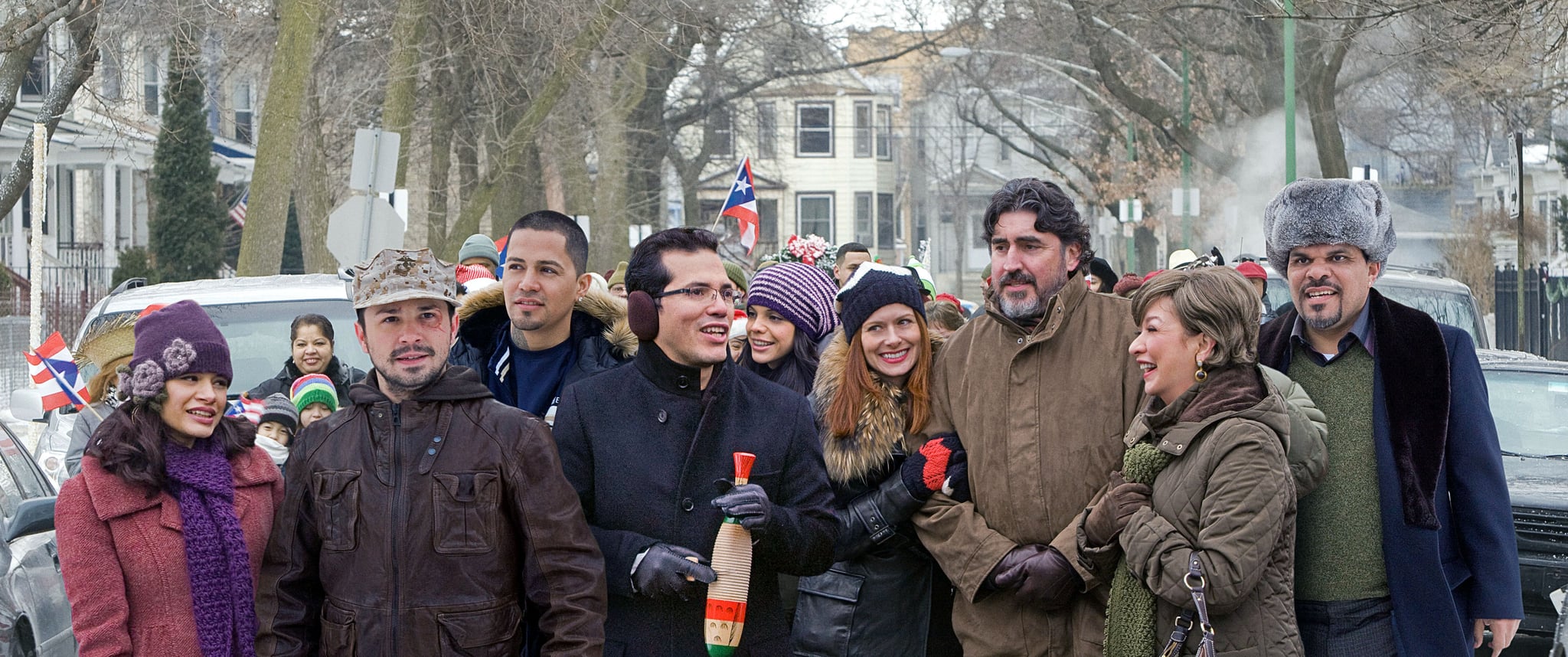
“Nothing Like the Holidays” has become the definitive Latinx Christmas movie. The 2008 film features a stellar lineup of our stars — John Leguizamo as the striving son, Luis Guzmán as the obnoxious cousin, Freddy Rodriguez as the returning brother, Melonie Diaz as the one who got away, the late great Elizabeth Peña as the long-suffering mother, and more. It’s non-Latinx talent includes Debra Messing as part of a cross-cultural marriage and Alfred Molina (who is of Spanish and Italian descent) as the family’s patriarch.
Watching it more than a decade after its release, “Nothing Like the Holidays” still holds up. The plot works, hitting the right emotional notes, while also keeping the audience guessing. The performances sing with real chemistry, mischief, and frustration. But why the film remains so relevant is in how it depicts the Latinx family at its center, using the Rodriguezes to get something right about la cultura.
“Every character that’s in there, I know that person. I could relate. I have an uncle like that, got a friend like that, a sister, a cousin,” David Rivera tells POPSUGAR. He’s the founder of Puerto Rican Flags Up, a community-based organization connecting Boricuas in the diaspora to their roots. He’s a huge fan of “Nothing Like the Holidays,” sharing that he has watched it more than 20 times since its release and still connects to it every time.
“[‘Nothing Like the Holidays’] is a reflection of our people — Puerto Rican. And not [those] on the island, [but] the ones that are here,” Rivera explains. “[It] was the first time that I’ve ever seen a film that really identifies with our lives, our day-to-day lives. Usually, we’ll watch a film and the character is Puerto Rican — he’s a drug dealer or drug addict, a thief, a criminal, or a womanizer. We all have that, every race has those.” But by centering a striving Puerto Rican family and celebrating all of its members, “Nothing Like the Holidays” paints a different picture. It shows Boricuas at all levels of economic success with different career paths, aspirations, and outlooks. It’s a much more realistic and comprehensive representation than we’re used to, and it resonates.
“There was a little bit of almost every scene I could relate to, and I got lost in the movie,” says Mario “The Butcher” Montes, another “Nothing Like the Holidays” superfan. He clocks more than 30 times watching the film, including in the theater when it first came out. What keeps him coming back? The “little gems” like the scene where the siblings escape their parents in the attic and pull out a pint of tequila or Molina’s tighty whities. “That’s our father,” he says. “He looked like my pop walking around the house like he was.”
Montes, who retired from the grocery business and is now pursuing his dream as a comedian, is Mexican, not Puerto Rican. So the dishes the Rodriguez family prepare and gather around aren’t the same dishes Montes and his family usually have around the holidays. But that doesn’t stop him from relating: “I felt I could smell it . . . It reminded me of one of my aunts on my mom’s side, eating at her house.” His connection to the film is deeper than naming the right dish.
“One of my favorite parts was when they were trying to cut the tree and the tree is not going anywhere. I feel it symbolizes where Latinos are in America, where so many people try to cut us out,” he shares. “But we’re petrified like that tree. We’re not going anywhere. We’ve embedded, rooted in this country, and people need to get over it.” In addition to claiming Latinxs’ place in this country, that scene, along with the film as a whole, also addresses Latinx ideas of masculinity, with the men taking turns trying to topple the tree in a show of manly prowess (or not). The brothers represent two ends of the masculine ideal. Leguizamo’s Mauricio is a high-earning New York attorney, while Rodriguez’s Jesse is a soldier who just got back from Iraq. Their father owns the local bodega, and while he’s a pillar of the community, he hasn’t been so great to his wife, with his history of infidelity.
What’s interesting is that even though the family’s father is the one who’s responsible for everybody, he also causes the film’s central conflict by keeping a secret. “The accuracy of that character — a lot of our men have so much machismo, they just keep things to themselves,” Rivera says. “You don’t even know that they’re suffering in silence, and a lot of our Latinos need to know, especially our men, it’s OK to share your pain. It doesn’t make you less of a man. It’s OK to ask for help.”
That lesson is part of the representation that makes “Nothing Like the Holidays” so unique. Here, the men aren’t victims or villains but rather flawed people trying to be better. And the film extends that grace to all of its characters, using the specificity of its Boricua family to get us there. Take how the film handles the Rodriguez family’s relationships with Catholicism. They’re a mix of believers and nonbelievers, churchgoers and non-churchgoers — bucking the stereotype that all Latinxs are devout Catholics. So when Mauricio is trying to convince his mother not to divorce his father, he invites their priest over for dinner. His idea is that he can use her devotion to change her mind. But she is not so easily manipulated and stands her ground, yelling back at her family before several of them tell the priest to shut up. This is the complex, multilayered, and continuously evolving relationship to the church of so many Latinxs, and it’s a nuance rarely portrayed on film.
“Nothing Like the Holidays” also manages to thoughtfully present interracial and interfaith couples, another common Latinx reality rarely done well in film. Both Rivera and Montes mentioned the evolution of the relationship between Messing’s Sarah and Peña’s Anna as particularly poignant for them. Sarah, the white Jewish outsider who appears to be failing her duty to produce grandkids, wins over her Boricua suegra. She does it partly through female solidarity but also by using the emotional intelligence her husband can’t deploy to his parents.
With all of these elements, “Nothing Like the Holidays” captures truths of Latinx culture in a way we’re not used to seeing on screen — with loving knowledge and universal themes. That’s deeply important to Rivera, who wants more of this type of representation. “It is so important for our existence, for our kids to understand that they are not a side character,” he says. Montes adds, “It really got me out of being a little burnt out from work or whatever . . . [leaving the theater,] I just felt so good. I felt like a better person.” That’s a holiday tradition worth celebrating.
